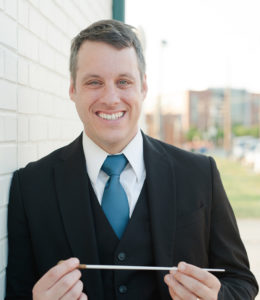Artistic Director 2007 – 2019
Dr. Allan Friedman
 Dr. Allan Friedman was the Artistic Director of WVC from July 2007 through May 2019.
Dr. Allan Friedman was the Artistic Director of WVC from July 2007 through May 2019.
Originally from Duluth, Minnesota, Friedman earned his BA in music at Duke, where he studied conducting with Rodney Wynkoop. In the fall of 1997, he studied at the University of Natal, Durban in South Africa, where he learned choral music from Joseph Shabalala, leader of Ladysmith Black Mombazo, renowned for their work on Paul Simon’s album Graceland. In 2001 Friedman graduated with a Master in Musicology from the University of North Carolina, Chapel Hill, where he wrote his thesis on South African choral competitions. While at UNC he also conducted the Collegium Musicum and the Harambe Choir. In the spring of 2005, Friedman earned his Doctorate of Musical Arts from Boston University, where he studied conducting with Ann Howard Jones and David Hoose. During his time at BU he conducted the BU Women’s Chorus and the BU Repertory Chorus, and wrote his dissertation on Russian Jewish Choral Music from St. Petersburg circa 1905-1925.
Friedman is the Music Director at Judea Reform Congregation in Durham, NC, and the founding director of SONAM, a chamber choir specializing in renaissance music. From 2004 to 2012 he served as the associate conductor of Duke Chapel Music, directing the Duke Vespers Ensemble and the Duke Divinity School Choir.
Friedman is also an active music teacher and clinician in the Triangle, teaching music history courses for retirees, and leading choral clinics and workshops throughout the state.
In addition to conducting and teaching, Friedman is an accomplished composer and arranger, having studied composition with Marjorie Merryman at Boston University and Steven Jaffe at Duke University. He has enjoyed several successful performances of his choral compositions and arrangements, most notably his Holocaust cantata With Perfect Faith and his choral cycle Songs of Radiance, which WVC premiered in 2010. Most recently, Women’s Voices Chorus premiered his piece “Miriyam, Maria, and Maryam – a Refugee Song,” a moving work for choir and instrumentalists which explores the harrowing experience of being a refugee by presenting the stories of three women from different centuries and diverse religious and cultural traditions.
